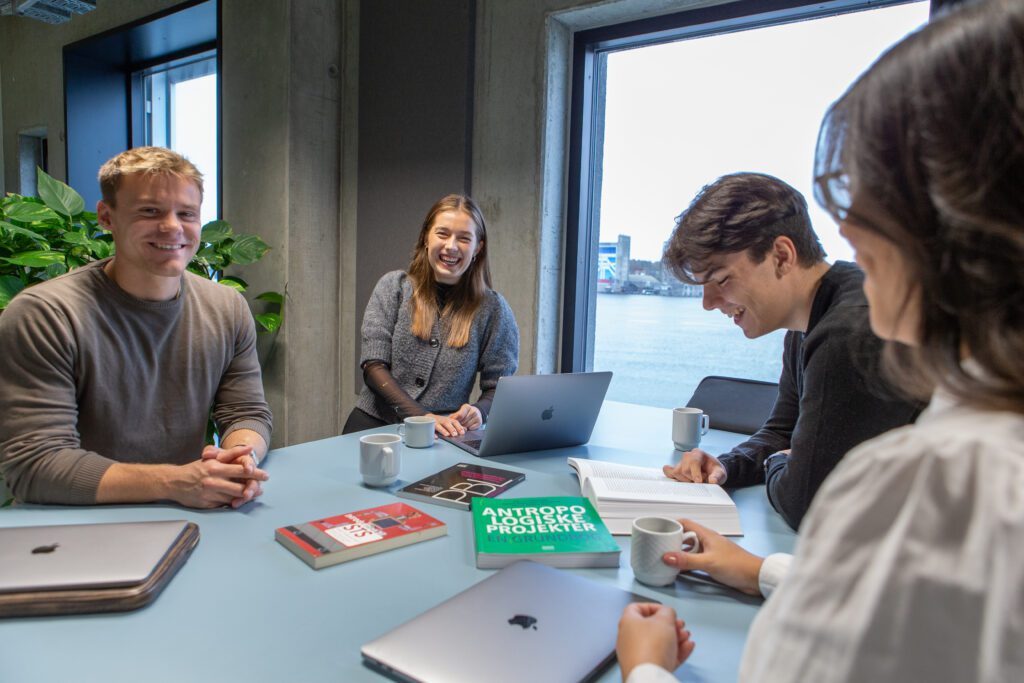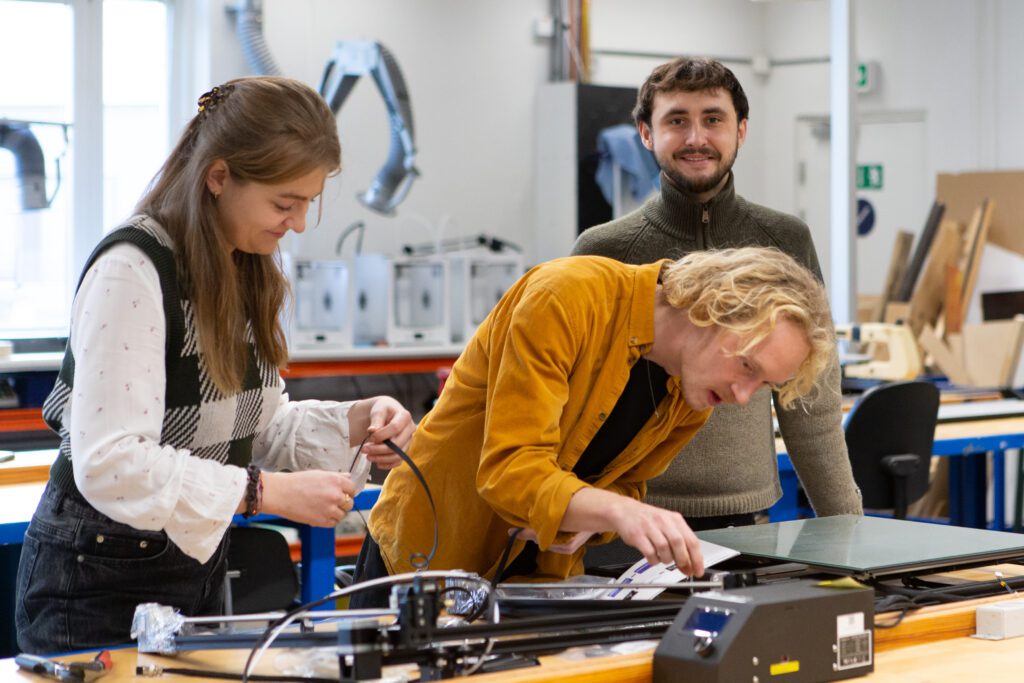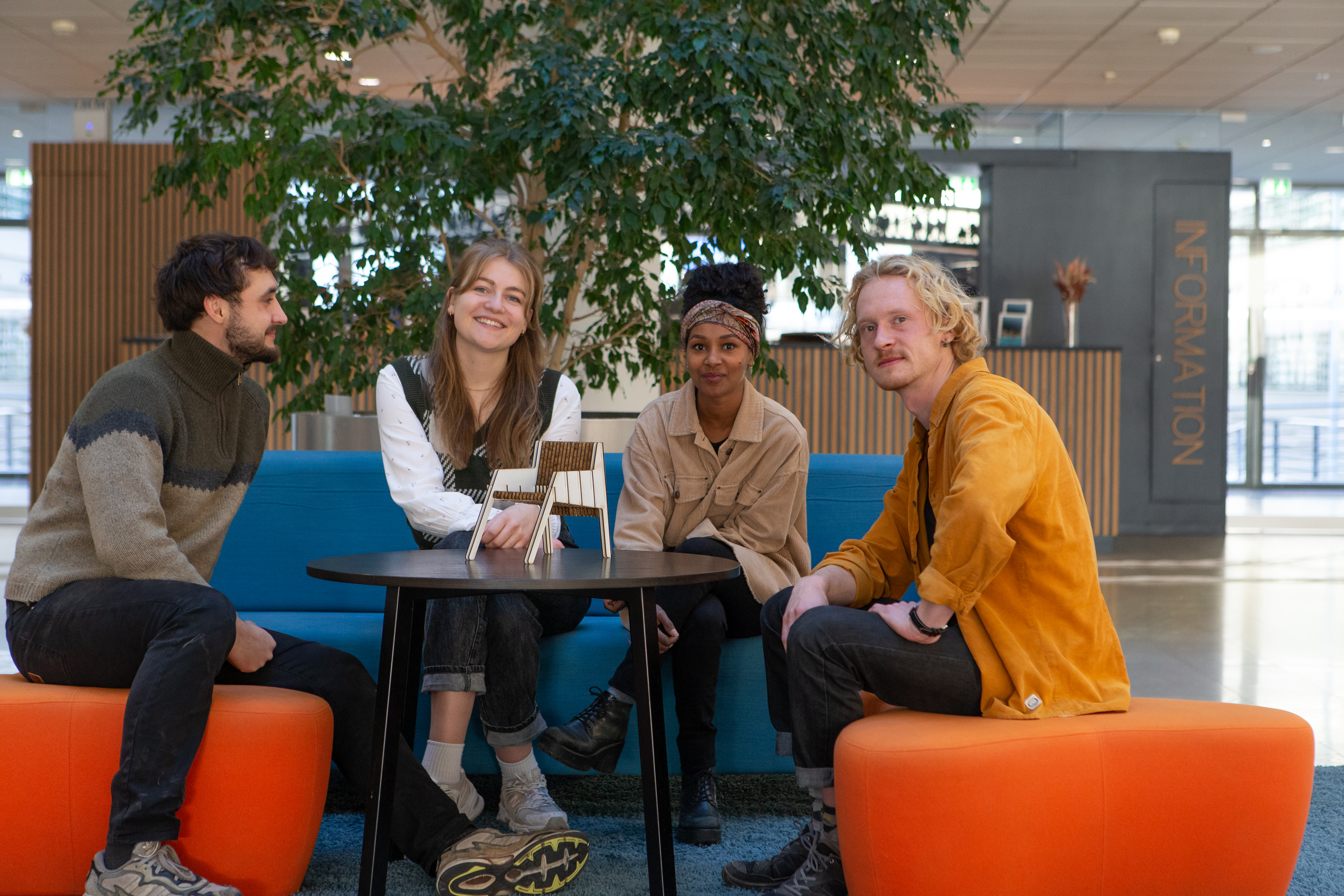If you’re passionate about shaping greener cities and smarter systems, a master’s degree rooted in sustainability is a must-have. Bianca Noelle Antonio from the Philippines signed up for one after spending several years working as an energy engineer in New York City.
She wanted to rethink how buildings can reduce carbon emissions better by upgrading mechanical systems. But she knew she needed to broaden her perspective. With no one-size-fits-all solution to the sustainable transition, design at every level – from product to service to city – will be necessary. A Master’s in Sustainable Design at Aalborg University‘s (AAU) Copenhagen campus gave her the chance to explore sustainability from multiple perspectives and deepen her impact.
“This programme seemed to apply to many disciplines within sustainability, so I thought it would complement my technical background well,” she says.
The Department of Sustainability and Planning adopts a broad approach to sustainability. You’ll explore both the social science aspects, such as sector planning and land management, and the technical aspects, including surveying and mapping. The department blends social and technological understanding in a way that prepares students to create meaningful changes for the future.
AAU itself is consistently ranked among the top universities for its commitment to sustainability. It is currently placed ninth in the Times Higher Education University Impact Rankings (a measure of how universities are performing against the United Nations Sustainable Development Goals). The department focuses on addressing global sustainability challenges and training students to prioritise renewable resources, life cycle analysis, the circular economy, environmental impact assessment, and other related areas.

The Department of Sustainability and Planning focuses on research and education in sustainability, circular economy, urban, energy, and environmental planning, and green transitions. Source: Aalborg University
The Department of Sustainability and Planning offers several master’s programmes designed to turn sustainability theory into real-world impact. If you are drawn to urban planning, energy, and environmental challenges, the Urban, Energy and Environmental Planning programme with its four specialisations, offered in Aalborg, is ideal.
Here, you can work on projects related to Denmark’s goal of achieving 100% renewable energy, developing greener transport systems, or promoting environmental responsibility among companies. Specialisations include Cities and Sustainability, Environmental Management and Sustainability Science, Sustainable Energy Planning and Management, and Urban Planning and Management.
“This programme is all about sustainability,” says student Sarah Diana. “We learn how to plan for sustainable cities, manage sustainable energy use, and help companies reduce pollution.”
The MS in Sustainable Cities, offered in Copenhagen, takes a two-part approach. First, you explore engineering challenges across four main infrastructure sectors: resources and waste, energy, water, and climate change, as well as transport and mobility. Second, you learn about political science, cross-sector synergies, and impact assessment. Throughout the two-year programme, you gain tools to quantify and analyse these challenges while understanding how policy, citizens, and organisations influence sustainable transitions.
Another option, the Master’s in Sustainable Design, hosted at Copenhagen, focuses on sustainable product design using innovation theory and user-oriented design tools. Visualisation and experimentation are central to developing solutions that can overcome systemic challenges. Hence why you’ll work on projects with NGOs, companies, public institutions, and professional groups to design future relief tents, develop robot vacuum cleaners, or create bike airbags. You might also work on rehabilitating older urban systems, from energy-efficient mobility to waste management.
The programme combines methods from social sciences and technology studies with technical and design practices. This prepares you to stage and implement innovative processes that yield products, services, and socio-material solutions, all in collaboration with relevant stakeholders. Antonio is currently working on a semester project with her team focused on sustainable mobility for a German company.
“It has been rewarding to work with an external partner who is invested in the project,” she says. “Having teammates with different backgrounds has also been great, because we all bring our past experiences to the table.”

The Department of Sustainability and Planning develops professionals who understand both the human and technical sides of sustainability, preparing future leaders to build greener cities and better infrastructure. Source: Aalborg University
The MSc in Techno-Anthropology, taught at Aalborg and Copenhagen, offers a different perspective. Here, you’ll explore technology through anthropological approaches, gaining an understanding of innovation and change across human, institutional, and societal levels. You’ll learn to analyse, facilitate, and assess emerging technologies while considering ethical and societal impacts.
No matter which programme you choose, all are problem-based. You’ll be placed in real-world situations with real issues to investigate and improve. This approach trains you to become a responsible problem solver and leader.
Both Aalborg and Copenhagen reflect these sustainability values. Aalborg is renowned for its extensive cycling infrastructure, making biking a popular mode of transportation for students and residents. Public transportation is highly accessible too, with electric buses helping to reduce the city’s carbon footprint. Copenhagen, meanwhile, is a global leader in sustainable urban development, with 397 kilometres of bicycle paths, a fleet of electric harbour ferries, and a majority of the hotel rooms in the city holding eco-certifications.
On-campus and city-wide events in both cities, such as the Aalborg Sustainability Festival are mirrored in Copenhagen by initiatives like CopenPay, introduced in summer 2024, which incentivises tourists to engage in sustainable actions.
Learn more about Aalborg University.
Follow Aalborg University on Facebook, Instagram, LinkedIn, and YouTube











